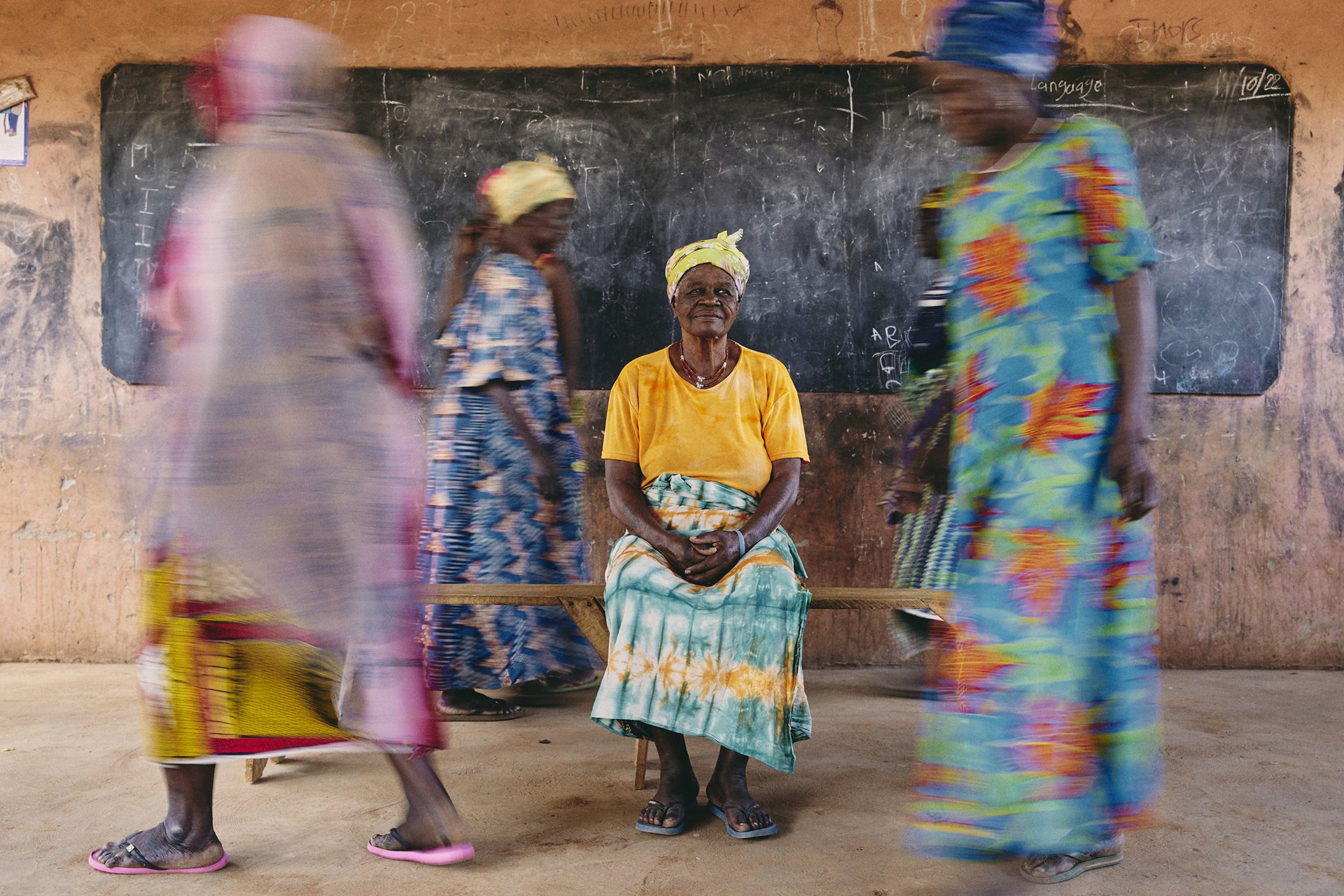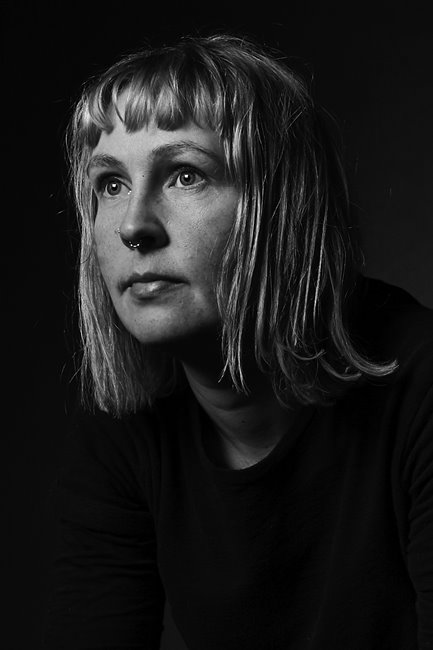Sugri Zenabu, a mangazia (female community leader) of the Gambaga “witch camp”, sits encircled by residents in Gambaga, Ghana. Zenabu shows some signs of confusion and memory loss associated with dementia.
This photograph is part of a personal project aimed at drawing attention to often overlooked stories about dementia from the African continent. As life expectancy rises, dementia is increasingly becoming a public health and socio-cultural issue in Africa. Numbers of people living with dementia in sub-Saharan Africa are projected to double every 20 years. While key policy makers highlight trends in dementia care, treatment, and prevention, less attention is given to cultural perceptions of the condition.
People who hold traditional beliefs in Ghana and across sub-Saharan Africa sometimes see dementia symptoms such as confused speech, uncontrolled swearing, and disoriented wandering as signs of sorcery. Women are accused of being witches more frequently than men. In Ghana, they may flee or be sent away to live in so-called “witch camps”. The camps are controversial. On the one hand, they offer refuge and protection from violence; on the other, residents are stigmatized, and open to exploitation by local chiefs, who earn money from trials and rituals associated with witchcraft. Nurses from local communities who are sensitive to traditional beliefs, can play a bridging role in education about dementia, and so in reducing discrimination and stigmatization.
Lee-Ann Olwage has family members who experienced dementia, and staged this portrait to allude to the many women who have passed through the camp.
Are you a photographer and/or passionate about press freedom? Sign up for our newsletter to stay updated on our annual contest and to hear about exhibitions near you.

